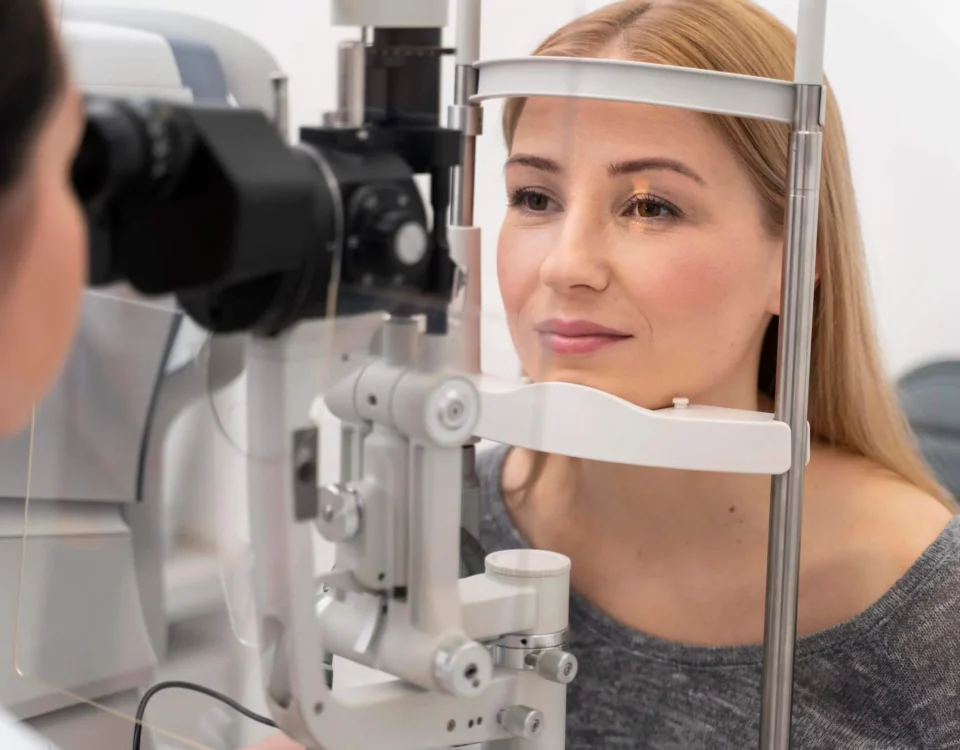
How to Improve Eye Health with Ophthalmology Care
August 12, 2025
Best Cosmetic Dentistry Treatments for a Perfect Smile
August 12, 2025Cataracts are one of the most common eye conditions affecting millions of people worldwide, especially as they age. If you or a loved one has been diagnosed with cataracts, you might be wondering about the best options for treatment. Thankfully, cataract surgery is a highly effective and safe procedure that can restore clear vision. But to ensure the best results, it’s crucial to choose the right ophthalmologist—an eye specialist who performs this delicate surgery.
In this article, we’ll explain what cataracts are, why choosing the best ophthalmologist matters, how to find the right specialist, and what to expect from cataract surgery. We’ll also answer common questions to help you make informed decisions about your eye health.
What Are Cataracts?
A cataract occurs when the eye’s natural lens, which focuses light onto the retina, becomes cloudy. This clouding blurs vision and can affect one or both eyes. Cataracts develop gradually and are usually related to aging, but other factors like diabetes, eye injuries, prolonged UV exposure, and certain medications can increase the risk.
Symptoms of cataracts include:
- Blurry or cloudy vision
- Difficulty seeing at night
- Sensitivity to light and glare
- Colors looking faded or yellowed
- Double vision in one eye
If left untreated, cataracts can eventually cause significant vision loss.
Why Cataract Surgery?
Cataract surgery involves removing the cloudy lens and replacing it with a clear artificial lens, called an intraocular lens (IOL). It is one of the most common surgeries worldwide and has a very high success rate.
The benefits of cataract surgery include:
- Clearer, sharper vision
- Improved quality of life and independence
- Reduced glare and better night vision
- Ability to reduce or eliminate dependence on glasses or contact lenses
Why Choosing the Best Ophthalmologist Matters
Cataract surgery is a delicate procedure that requires expert skill and precision. Choosing the best ophthalmologist can significantly impact the success of your surgery and recovery. Here’s why:
Experience and Expertise
A top ophthalmologist will have extensive experience performing cataract surgeries. They stay updated on the latest techniques and technologies to provide the safest, most effective care.
Personalized Care
The best surgeons take the time to understand your unique vision needs and lifestyle, tailoring the choice of IOL and surgical approach accordingly.
Advanced Technology
Leading ophthalmologists use state-of-the-art diagnostic tools and surgical equipment, which can improve accuracy and outcomes.
Patient Comfort and Support
An excellent ophthalmologist and their team will ensure you feel informed, comfortable, and supported before, during, and after surgery.
How to Find the Best Ophthalmologist for Cataract Surgery
1. Seek Referrals and Recommendations
Start by asking your primary care doctor, optometrist, family, or friends for recommendations. Online reviews and patient testimonials can also provide helpful insights.
2. Verify Credentials and Experience
Look for board certification, specialized training in cataract surgery, and years of surgical experience.
3. Check Technology and Techniques Used
Inquire if the ophthalmologist offers modern surgical options like femtosecond laser-assisted cataract surgery or advanced premium IOLs, which can improve results.
4. Schedule a Consultation
Meeting the ophthalmologist allows you to ask questions, discuss your concerns, and see if you feel comfortable with their communication style.
5. Evaluate Clinic Facilities
Consider the cleanliness, staff professionalism, and overall environment of the clinic or surgical center.
What to Expect During Cataract Surgery
Cataract surgery is typically an outpatient procedure lasting about 15-30 minutes per eye. Here’s a brief overview:
- Before surgery: Your eye will be numbed with drops, and you may receive a mild sedative.
- During surgery: The surgeon makes a tiny incision, breaks up the cloudy lens with ultrasound or laser, and inserts the artificial lens.
- After surgery: You’ll rest for a short time and receive eye drops to prevent infection and inflammation.
Most patients notice vision improvement within a few days and can resume normal activities shortly after.
Advanced Options and Recovery Tips
Many ophthalmologists now offer advanced options like multifocal or toric lenses that correct presbyopia or astigmatism, reducing dependence on glasses after surgery.
To aid recovery:
- Follow your doctor’s instructions carefully.
- Avoid strenuous activities and swimming for a few weeks.
- Use prescribed eye drops regularly.
- Attend all follow-up appointments.
5 FAQs About Cataract Surgery and Choosing the Best Ophthalmologist
1. How do I know if I need cataract surgery?
If your vision problems interfere with daily activities like reading, driving, or recognizing faces, it’s time to consult an ophthalmologist for evaluation.
2. Is cataract surgery painful?
No, the procedure is done under local anesthesia with numbing eye drops. Most patients feel little to no pain during surgery.
3. What are the risks of cataract surgery?
While rare, complications can include infection, swelling, or retinal detachment. Choosing an experienced ophthalmologist minimizes these risks.
4. Can I have both eyes done at once?
Usually, cataract surgery is performed on one eye at a time, with a few weeks between surgeries for proper healing.
5. How long does the artificial lens last?
The intraocular lens is permanent and does not need to be replaced.
Final Thoughts
Cataract surgery can dramatically improve your vision and quality of life, but its success depends largely on choosing the right ophthalmologist. Prioritize experience, advanced technology, and personalized care when selecting your eye surgeon.
Don’t hesitate to ask questions, get multiple opinions if needed, and feel confident in your decision. Your eyes deserve the best care possible.




